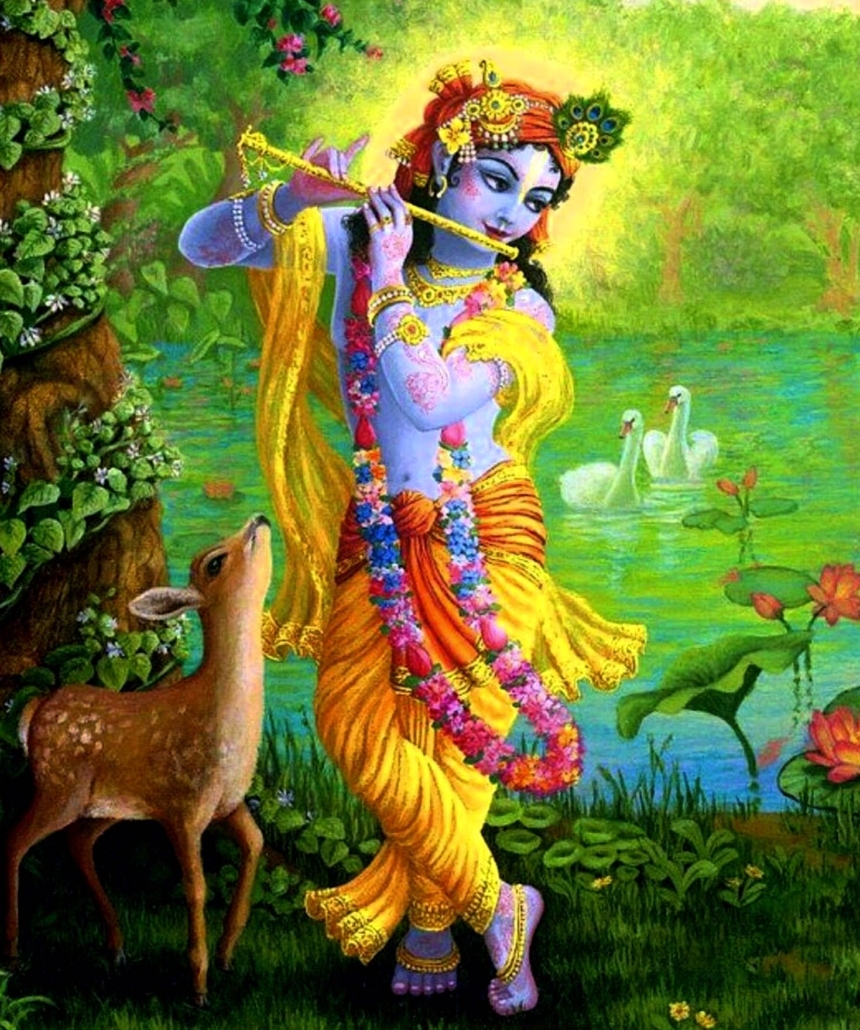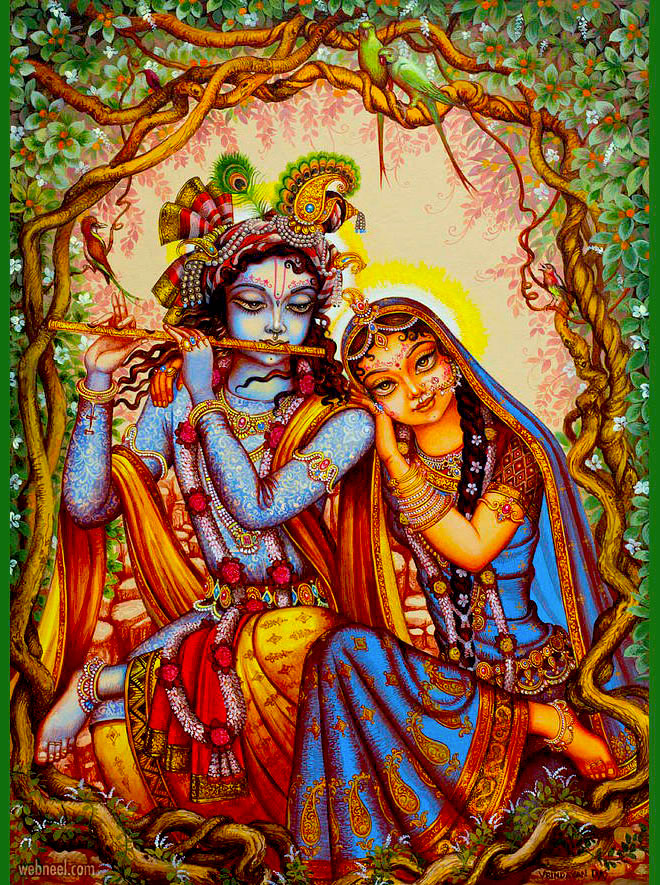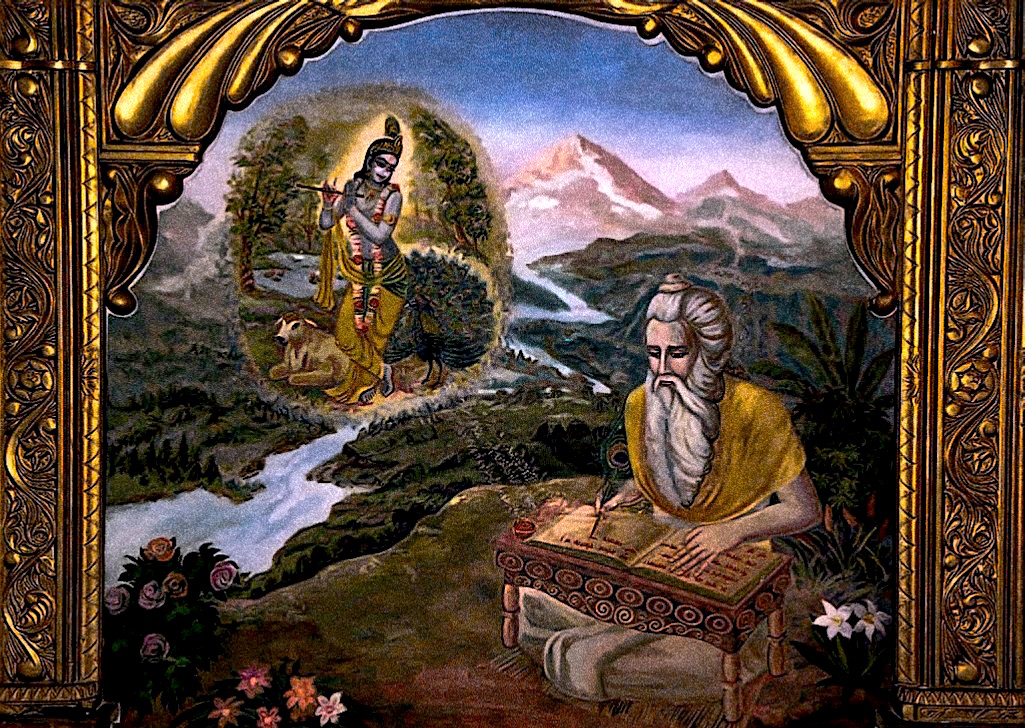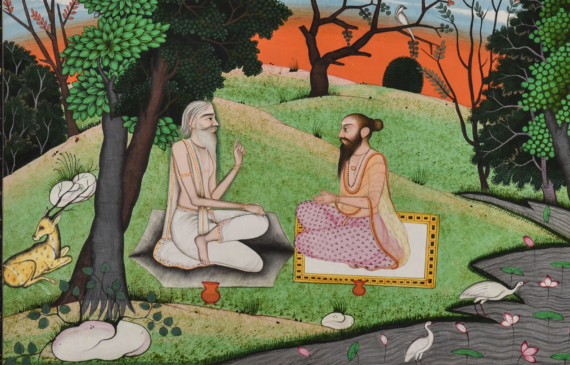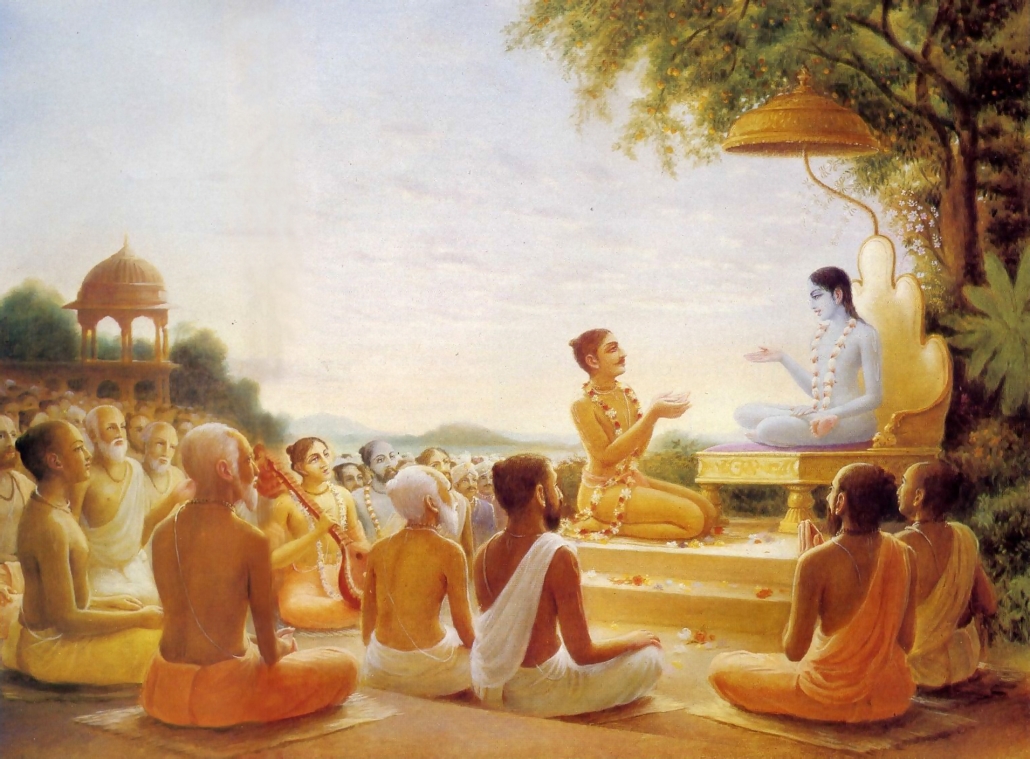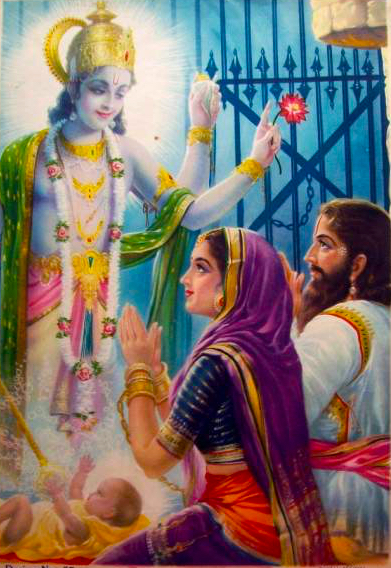Mahanidhi Madan Gopal Das
Srimad Bhagavatam is called the “king of all spiritual books” (Grantha Raja) for good reason. Within this triguna-free, transcendental treatise, the amala-purana, which showcases the absolutely selfless, divine love of Srimati Radharani, one can find all the sweet, majestic and beautiful truths about the sadhana and sadhya (daily practice and perfection) of Gaudiya Vaisnavism.
In his most compassionate and wonderful shastra, Sri Chaitanya Caritamrita, Sri Krishna Dasa Kaviraja summarizes the teachings of Sri Caitanya Mahaprabhu and the six Goswamis of Vrindavana by mentioning the same Bhagavatam verses that they used to substantiate their sublime instructions.
To emphasize the importance of these particular verses for all Gaudiya Vaisnavas, the same Bhagavatam verse is often mentioned two, three or more times in the Sri Chaitanya Caritamrta.
This series of posts presents these verses, along with selected tikas of our acharyas and the compiler. We will cover the beautiful truths, tattvas, of Krishna, Radha, Vaisnavas, Sri Guru, Bhakti Sadhana, Nama, Prema and more.
Vrajavasis’ Astonishing Prema
aho -bhagyam -aho -bhagyam
nanda-gopa-vrajaukasam
yan-mitram -paramanandam
purnam-brahma -sanatanam
Aho! How greatly fortunate are Nanda Maharaja, the cowherd men and all the other inhabitants of Vrajabhumi! There is no limit to their good fortune, because Krishna gives them prema, which is the highest bliss, eternal and complete.(Srimad Bhagavatam 10.14.32)
Sri Sanatana Goswami tika:
Krishna acts for the benefit of the Vraja-vasis not just in certain situations but always. And Krishna not only delivers the Vrajavasis from fear but also gives them the highest varieties of ecstasy. Thus Krishna is the source of their intense happiness, and they consider Krishna their dearmost friend.
Were Krishna merely Bhagavan, their love for Krishna would be severely restricted. But Krishna, at once, is both the Supreme Absolute Truth and the dear friend of the residents of Nanda’s cowherd village. (Brhad Bhagavatamrtam 3.7.98)
Sri Jiva Goswami tika:
Oh (aho)! Brahmaji is astonished over the inconceivable good of the Vrajavasis. He repeats the phrase to show their extreme good fortune and indicate his still greater astonishment.
Anandam hints at the shruti which says vigyanam -anandam -brahma: parabrahman Sri Krishna is knowledge and bliss. (Brhad-aranyaka Upanishad 3.9.32)
Other forms of Bhagavan also give prema. But bliss personified, Sri Krishna gives prema to the Vrajavasis. This is to be known from the shruti alone. Parama combined with ananda means extraordinary sweetness.
There is something else which is astonishing: this bliss is eternal. Someone may have a little amount of bliss, but that is not eternal. These cowherds have eternal bliss.
Sri Visvanatha Cakravartipada tika:
After praising the ragatmika vatsalya-prema (deep spontaneous parental affection) of the Vrajavasis, Brahmaji glorified those with ragatmika sakhya-prema (mitram), relishing intimate relationships with Sri Krishna.
As a friend (mitra), Sri Krishna is not a temporary friend; Krishna is the eternal friend (sanatana) of Sridama and others (yat).
All the inhabitants of Vrndavana ruled by Nanda Maharaja (nanda –gopa- vrajaukasam) down to the birds and beasts were indescribably fortunate because they became the friend of parama -anandam -brahma –sanatanam Bhagavan Sri Krishna.
Therefore, the Vrajavasis give the topmost bliss to Krishna, and receive the topmost bliss in return. Witnessing this exchange of supreme, selfless love, Brahmaji repeats the phrase aho bhagyam twice to indicate His extreme bliss and astonishment.
Sri Visvanatha Cakravartipada ki jai!
Mahanidhi Madan Gopal Das comments:
Sri Chaitanya Mahaprabhu quotes this verse from Brahma Stuti while enlightening Sarvabhauma Bhattacharya about the Personality of God (Caitanya Caritamrita 2.6.149). In Vraja Vilas Stava (42), Sri Raghunatha Dasa Goswami glorifies the cowherds of Vrndavana:
“I worship the best of cowherds, who have attained the greatest happiness that can be achieved in the entire universe. The Vrajavasis are protected by Krishna with more love than He feels for millions of universes. The Vrajavasis are always eager to protect even the particles of dust falling from the edges of Krishna’s beautiful lotus-toenails.”
Although the Vrajavasis directly witness Krishna’s unlimited power when He kills demons, their conception of Krishna as Nanda’s son is not even slightly slackened. Their unbounded love for Krishna simply increases.
Brahmaj repeats “aho bhagyam, aho bhagyam” to highlight the incredible good fortune of Sri Krishna’s cowherd clan in Vrndavana. Thus we continually pray for a particle of mercy dust from the beautiful lotus feet of Nanda Baba. And for time eternal, we will worship the sacred dust of the cowherds, the cows and the transcendental land of Vrndavana!
Vrndavana dham ki jai! Jai Jai Sri Radhe!

